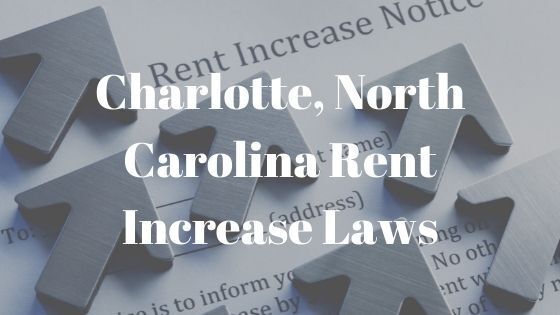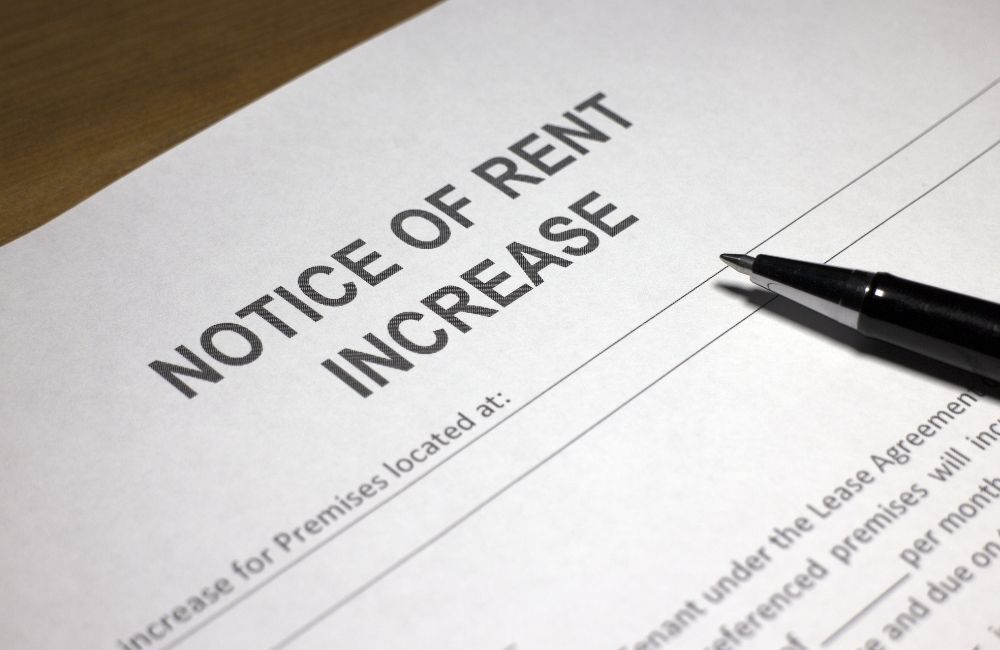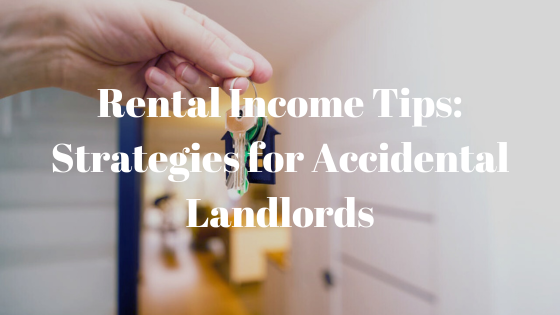North Carolina Rent Increase Laws: An Overview in Charlotte

Rent is the bread and butter of your rental investment. At some point in your career, you'll need to hike it in order to meet your financial obligations and turn a profit.
North Carolina has a specific rent increase law in place. This law is intended to clear up issues when it comes to rent increases.
This article by Dawson Property Management includes everything you need to know about increasing rent in North Carolina.
Does North Carolina Have a Rent Increase Limit?
No. North Carolina landlords are free to charge whatever amount of rent they see fit. Still, though, most landlords realize the importance of charging their tenants a fair and reasonable rent.
Overcharging your tenants can make them resent you, and send them looking for another property as soon as possible. If they leave your property for the rent being too high, you'll have the added challenge of having a vacant rental and needing to find a new tenant.
When Can a Landlord Increase Rent in North Carolina?
An NC landlord can't change the rent amount during the lifetime of a lease. You must wait until the lease has ended and is being renewed in order to increase the rent. Once the lease ends, you can increase the rent as you see fit.
However, this applies only if you haven't specified otherwise in your lease. If you'd like to increase the rent during the course of a lease, you'll have to note this in the rental agreement.

Do You Have to Notify Tenants Before Raising Rent?
Yes and no; it depends on the type of lease agreement. If you have a month-to-month lease, you need to give your tenant at least 7 days' notice before raising the rent.
However, this doesn't apply to tenants on a yearly lease. This is because you can only increase the rent after the lease expires, so the 'notice' would just be the new rent price included in the new lease.
Can NC Landlords Charge a Fee for Bounced Checks?
Yes. In North Carolina, landlords are permitted to charge up to $25 for rent payments that get returned due to insufficient funds.
Is There a City in North Carolina With Rent Control?
No, there are no cities in NC with a rent control law in place. In fact, the state legislation states that no city or county in NC can pass an act to control rent increases.

When is it Illegal to Raise Rent in NC?
In North Carolina, there are times where a rent increase may be illegal. One instance is when the increase is an act of retaliation against a tenant for exercising one of their fundamental rights.
Examples of these rights include the right to:
- Request repairs on the property.
- File a complaint with the relevant agency regarding a violation to the health, safety or building codes.
- Organize or join a tenant’s union to advocate for their rights.
- Exercise any other right provided for by the lease/rental agreement and state/federal laws.
Another instance is when the rent raise is discriminatory. The Fair Housing Act makes it illegal to discriminate against a tenant on the basis of protected characteristics. These include race, color, religion, sex, disability, familial status, and national origin.
Are There Rules on Late Fees?
Typically, a lease or rental agreement specifies when rent is due. This is usually the first day of every month. If your tenant fails to pay it when due, you can charge them a late fee when it's five days overdue.
The late fee should not be more than $15, or 5% percent of the monthly rent payment, whichever is greater.
In the case of nonpayment of rent, North Carolina is particular on the rules and procedures landlords must follow. For starters, you must provide your tenant with a 10 days’ notice to pay the rent or move out. If the tenant doesn’t do either after the end of the 10 days, you can move to court and file for their eviction.
Tenants not paying rent may happen after you increase the rent. As such, as a landlord, you should be aware that raising rent on your tenant carries a certain amount of risk.
That’s why you need to make sure any rent increases are reasonable.
What to Include in a Lease's Rent Increase Clause

Having a solid lease or rental agreement is key to successfully running a rental property. This will reduce common misunderstandings and conflicts. The following are key rules your lease agreement shouldn’t miss.
- Amount of rent. Landlords in North Carolina aren’t limited on how much they can charge their tenants.
- How rent is to be paid, such as cash, money order, check, et cetera. You should also specify the address where it should be delivered if it's a physical payment.
- When rent is due. Most leases require tenants to pay rent by the 1st of every month.
- The amount of late fees. The late fee on rent should not exceed $15 or 5% of the rent amount, whichever is greater. North Carolina rent increase laws also require that you wait until rent is 5 days late to impose it.
Disclaimer: This blog is only meant to be informational, and not a substitute for professional legal advice. Also, laws change and this information might no longer be up to date at the time of your reading. For expert help, kindly get in touch with a qualified attorney or an experienced property management company in NC.







